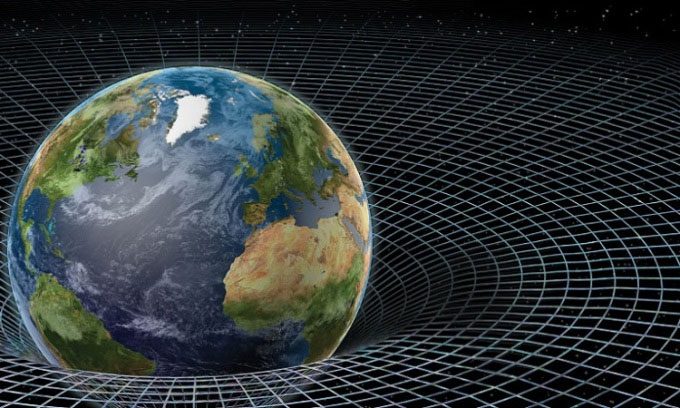Researchers have indicated that gravity may cause humans to age more slowly depending on their altitude above sea level, but the difference is only a few milliseconds.
The closer an object is to Earth, the stronger the gravitational force it experiences. According to the theory of general relativity, gravity distorts the fabric of spacetime, causing time to move slower at higher altitudes and greater distances from Earth, where gravitational force is weaker. Thus, if time is influenced by gravity, do people living at high altitudes age faster than those at sea level? Does increased gravity slow down human aging?

Gravity can affect time in the fabric of spacetime. (Image: Space)
In fact, for all objects far from a gravitational field, time does indeed move slower, according to James Chin-wen Chou, a physicist at the National Institute of Standards and Technology (NIST) in Boulder, Colorado. This means that people living at high altitudes age slightly faster than those living at sea level.
The difference is extremely small but measurable. If you were to stay at the summit of Mount Everest at an altitude of 8,848 meters above sea level for 20 years, you would age 0.91 milliseconds more than if you spent 30 years at sea level, according to NIST. Similarly, if a pair of twins lived at sea level apart for 30 years, one moved to Boulder, Colorado (1,600 meters high) while the other stayed put, the sibling living at a higher altitude would age 0.17 seconds more than their twin.
In one experiment, the NIST research team used one of the most accurate atomic clocks in the world to demonstrate that time passes more quickly even at an altitude of just 0.2 mm above the Earth’s surface. Tobias Bothwell, a physicist at NIST, described the experiment in a paper published in early 2022 in the journal Nature. He and his colleagues observed a change in time at a distance as small as the width of a human hair.
The key to understanding why massive objects warp the timeline is to recognize the spacetime fabric as a four-dimensional carpet woven from three-dimensional space (up/down, left/right, forward/backward) and one-dimensional time (past/future). In the relativistic model, any object with mass distorts this carpet, bending space and time. According to Andrew Norton, a professor of astrophysics at The Open University in the UK, the effect truly exists and is measurable but easily overlooked in everyday situations.
However, the phenomenon known as gravitational time dilation can impact satellites. According to Norton, GPS satellites orbiting Earth at an altitude of 20,186 kilometers need adjustments because their clocks run 45.7 milliseconds faster than clocks on the ground after every 24 hours. “Because GPS satellites move at high speeds and at great heights from Earth, the relativistic effects from speed and gravity need to be carefully calculated to accurately infer our position on Earth,” Norton said.





















































